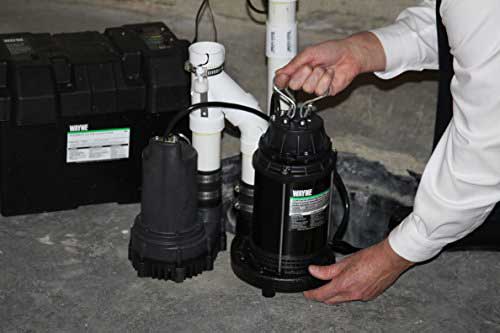It has been estimated that the third largest energy consuming activity in the average home is heating water. It also represents roughly 12% – 14% of all utility expenditures…
Benefits of the Tankless Water Heater
This article compares the energy efficiency of a tankless water heater to a conventional storage water heater. Both electric and natural gas units conserve energy, save money, and lower energy bills drastically.
It has been estimated that the third largest energy consuming activity in the average home is heating water. It also represents roughly 12% – 14% of all utility expenditures – gas, electricity, water, etc. There is a more efficient alternative: the tankless water heater. When you use one you will save an amazing amount of energy
Why are tankless (also known as instantaneous water heaters or demand), A tankless water heater only produces hot water when it‘s asked for. It doesn’t demand the wasteful energy usage in the home that conventional water heaters do. Imagine the advantage! It will save a huge amount of cash on your energy bills over time.
How to Configure On-Demand or Tankless Water Heaters
Tankless heaters are available for homes with either gas or electric hook-ups. Gas tankless heaters present a higher water flow than electric models. But at times the largest gas heater won’t supply enough hot water for multiple demands in larger homes. For example, while one person is taking a shower and the dishwasher is running simultaneously, a tankless water heater may be stretched beyond its limits. To remedy this problem, consider connecting two or perhaps three tankless water heaters in parallel for simultaneously requests for hot water?
How Will a Tankless Water Heater Save You Money?
In the first place, a conventional water heater is running 24/7, keeping the water hot consistently. Usually it gets a heavy load request in the morning because the people are showering, making breakfast, etc. The heater is trying to keep up with demand while maintaining the desired temperature. After everyone has left for the day, it’s still operating to keep the temperature and level consistent for no reason, except to be ready.
And it continues to burn energy at night while the people sleep.
The tankless water heater doesn’t operate like that. When a demand presents itself, it works efficiently but when the demand stops, so does its energy use. (Other than a gas-fired unit, which maintains its pilot light)
You’ll also save cash on replacing old units because a tankless water heater will last at least twenty years. A conventional heater is only good for ten to fifteen years, considering that you maintain it as specified by the manufacturer. Additionally, the true efficiency of a storage heater goes down hill over time because of the honeycomb syndrome.
How Efficient is a Tankless Water Heater?
Consider, if a home uses 41 or so gallons of hot water per day, a tankless heater can represent 25% – 35% more energy efficiency compared than your conventional storage heater. But if your home uses more hot water each day, say 85 gallons on average, then you should reap 8% – 14% more efficiency. If you install a tankless water heater at each demand spot, your savings are estimated to be 25% – 52%!
Does it Make Monetary Sense to Convert to Tankless?
This question can only be answered on an individual basis. Many factors figure into the equation. Will energy costs will continue to rise sharply in your area? What’s the total cash expenditure to buy and install tankless heaters in your home? How many years do you expect to stay in your home? These are some of the questions you must consider.



 Click To Call / Text
Click To Call / Text
